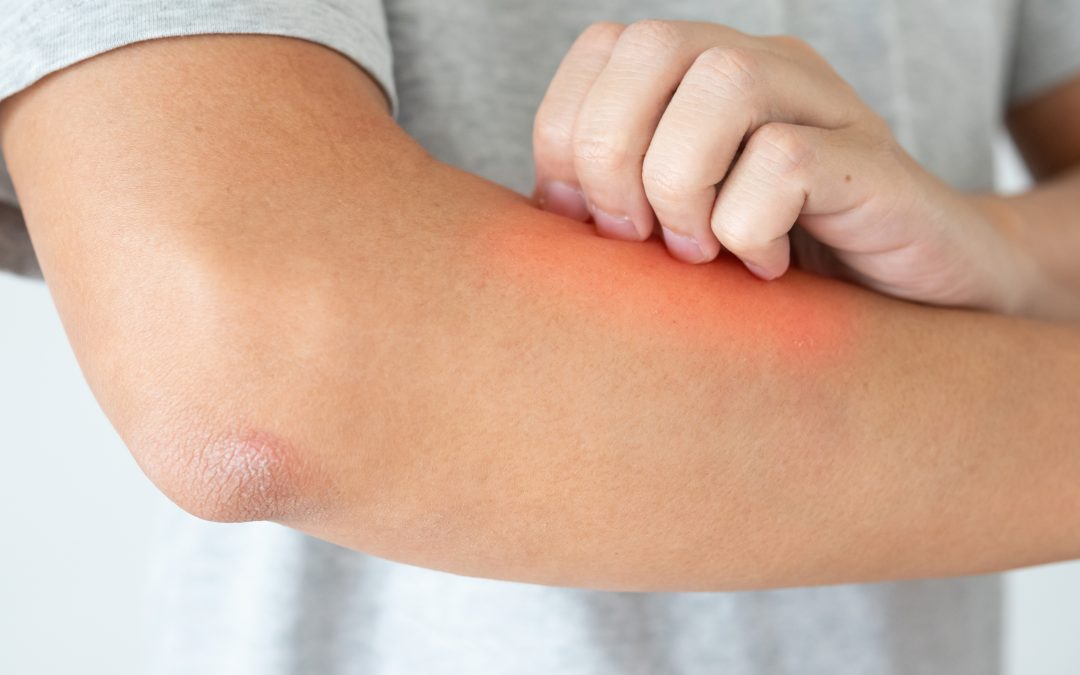Why Is My Skin So Dry in the Winter?
Whether you’re finding deals at Hamilton Place Mall, staying at the Chattanooga Choo-Choo, or exploring the seasonal festivities at Rock City, there’s nothing like Chattanooga in the wintertime. But when your skin feels rough or you’re distracted by itchy skin, it’s hard to embrace this time of year. Don’t let dry skin keep you from enjoying the cold weather. Start following some of these tips now to prevent your battle with dry skin later this winter.
Is your skin feeling rough and flaky on your elbows or knees? Maybe you’ve noticed some cracks in your hands? Well, you’re not alone. As winter rolls in, many of us deal with the annoying discomfort of itchy, dry skin. So, let’s get to the bottom of why this happens and what you can do about it to keep your skin in top shape during the colder months.
When you have questions or concerns about your dry skin, visit AFC Urgent Care Chattanooga on Gunbarrel Road for prompt, efficient care.
Why Does My Skin Get Dry When It’s Cold?
In winter, the air becomes drier, both inside and outside. This lack of humidity speeds up the evaporation of moisture from your skin, leaving it dry. On top of that, the cold temperatures can tighten up your blood vessels, reducing the flow of natural oils and nutrients to your skin. Together, these factors team up to give you that all-too-common winter dry skin.
Areas Most Prone to Dry Skin
Dry skin varies for each person, but there are some key areas that tend to be more prone to drying out, especially when the temperature drops.
- Elbows. The skin on your elbows is naturally thicker and more prone to dryness. Thanks to a lack of oil glands in this region, it’s more susceptible to losing moisture.
- Hands. Your hands bear the brunt of cold air, harsh soaps, and frequent handwashing, all of which can strip away your skin’s natural oils, leaving it dry and prone to cracking.
- Knees. Similar to elbows, the skin on your knees is on the thicker side and has a tendency to become dry. Keeping it moisturized is essential to ward off dryness and roughness.
- Face (especially around the mouth). The delicate skin on your face is sensitive to environmental shifts, and the area around your mouth is particularly prone to dryness due to constant exposure to cold air and wind.
- Feet. Winter footwear, like closed shoes and boots, can make your feet sweat, leading to dryness and potential cracking. The lack of moisture in the air only makes this issue worse!
Tips for Preventing Dry Skin This Winter
Add moisture to the air with a humidifier
Humidifiers are lifesavers during the dry winter months. They add moisture back into the air, preventing your skin from becoming parched and irritated. Keep your skin hydrated and happy with these humidifier tips:
1. Choose the Right Size. Select a humidifier that’s appropriately sized for your home. A humidifier that’s too small won’t be effective, while an oversized one can create a damp environment that welcomes mold.
2. Choose the Best Area. Position your humidifier in a central location to ensure even distribution of moisture throughout your living space.
3. Regular Cleaning. Remember to clean your humidifier to prevent the build-up of bacteria and mold. Most humidifiers come with specific cleaning instructions.
4. Set the Ideal Humidity Level. Aim for a humidity level between 30 and 50 percent. This range is beneficial for both your skin and your home’s well-being.
Avoid hot showers
While hot showers may provide temporary relief from the cold weather, they can wreak havoc on your skin. The harsh water strips away your skin’s natural oils, leaving it feeling parched and uncomfortable. Ever noticed your skin turning red after a hot shower? This is because the hot water causes blood vessels in your skin to dilate, leading to redness, irritation, and dryness. Additionally, hot water can damage keratin cells, which is the protective barrier on the outermost layer of your skin. When keratin cells are damaged, they can no longer effectively lock in moisture, leading to flaky, dry skin.
Instead of indulging in hot showers, try lukewarm ones. Lukewarm water is gentle on your skin and won’t strip away its natural oils. It’s also a good idea to limit your shower time to 5-10 minutes to minimize the exposure of your skin to hot water.
Moisturize Your Skin
Regular moisturizing can help combat harsh dry skin by keeping it skin hydrated and comfortable throughout the season.
When selecting a moisturizer, opt for fragrance-free and non-comedogenic options to avoid irritating your skin or clogging your pores. For severely dry skin, ointments and creams are generally more moisturizing than lotions. Look for products containing ceramides, hyaluronic acid, and shea butter, as these ingredients effectively replenish your skin’s natural oils and lock in moisture.
Your skin is most receptive to moisture when it’s slightly damp. After bathing or showering, pat your skin dry instead of rubbing it harshly. This will help retain some moisture on the surface, making it easier for your moisturizer to penetrate effectively. Apply a generous amount of moisturizer to all areas prone to dryness, including your face, elbows, knees, hands, and feet. Repeat this process daily, or more often if needed, to keep your skin supple and hydrated.
Protect your skin
When venturing outdoors in the winter, bundle up to protect your exposed skin from the harsh elements. Wear gloves to shield your hands from the cold and wind, a scarf to keep your neck and face warm, and a hat to protect your scalp and ears. Even though the sun’s rays may seem less intense in winter, they can still damage your skin. Apply a broad-spectrum sunscreen with an SPF of at least 30 to all exposed skin, including your face, neck, and hands.
Stay hydrated with a healthy winter diet
What you consume can play a significant role in keeping your skin hydrated and radiant. A diet rich in fruits, vegetables, and whole grains is your skin’s best friend during the colder months.
Fruits are packed with water, which helps keep your skin hydrated and prevents dryness. They are also a rich source of antioxidants, which protect your skin from damage caused by free radicals. Incorporate a variety of fruits into your diet, such as berries, citrus fruits, and melons, to keep your skin looking its best. Vegetables are a treasure trove of vitamins A, C, and E, all of which play a vital role in maintaining skin health. Load up on vegetables like leafy greens, carrots, and broccoli during your meals.
Omega-3 fatty acids, found in fatty fish like salmon, tuna, and sardines, are essential for maintaining skin elasticity and preventing inflammation. They help keep your skin cells well-hydrated and prevent them from becoming dry and brittle. Aim to incorporate at least two servings of fatty fish into your diet each week to support your skin’s health.



